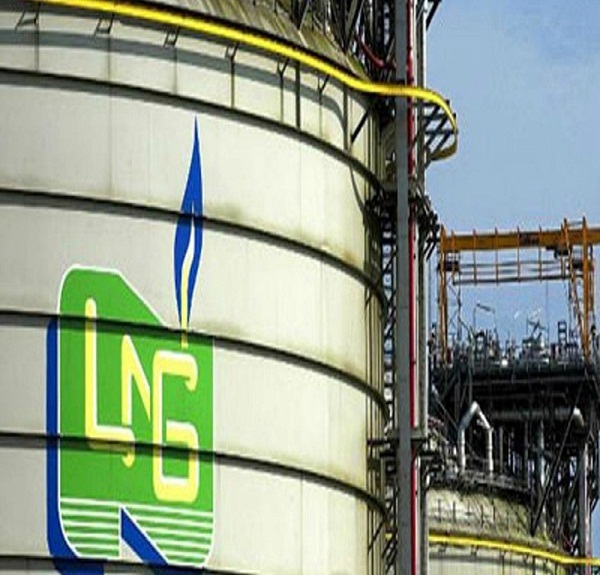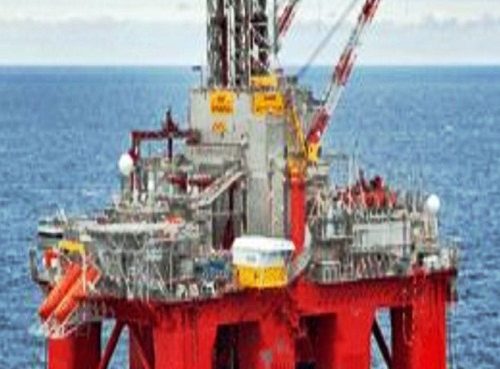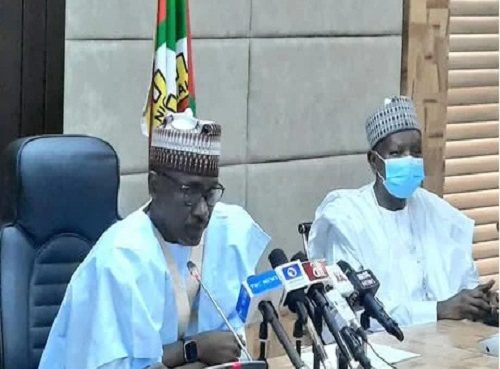It was a good way to end 2019 for the country’s oil and gas industry when on December 27, the shareholders of the Nigeria Liquefied Natural Gas Limited (NLNG), including the Nigerian National Petroleum Corporation (NNPC), Shell, Total and Eni took the Final Investment Decision (FID) on NLNG Train 7 project. The decision, which signals a go-ahead with the construction of the huge project, is significant to the development of the petroleum industry and the economy
After 12 years of delay and shifting the post on taking the Final Investment Decision (FID) on NLNG Train 7 project, the owners (shareholders) of the Nigeria Liquefied Natural Gas Limited (NLNG) put ink to paper last December 27, thereby ending the dilly-dallying on the Train 7 project FID.
To oil and gas industry stakeholders, taking the FID was significant in many ways. Beside the potential huge income and employment generation that are anticipated in it, the project is an answer to calls for the utilisation and monetisation of the country’s huge gas resources.
The calls were part of concerns expressed by stakeholders about the sub-optimal exploration and utilisation of the nation’s natural gas.
Notwithstanding the low utilisation, Nigeria is still among world’s major gas flaring nations, and also the world is gradually moving away from fossil fuels, which calls for aggressive and maximum monetisation of the nation’s natural gas for use in development of other sectors of the economy.
According to data from the Department of Petroleum Resources (DPR), flared gas in Nigeria can attract $3.5 billion investments and enough to generate 2.5 gigawatts (Gw) of power or produce 50 million barrels of oil equivalent (boe).
The DPR noted that the flared gas can produce 600,000 metric tonnes of liquefied petroleum gas (LPG) yearly, produce 22 million tonnes of carbon dioxide (CO2), feed two-three liquefied natural gas (LNG) trains and generate 300,000 jobs, among others.
It further said gas flared last in 2018 was as high as 324 billion standard cubic feet (bscf), while about 888 million standard cubic feet of gas was flared daily in 2017, adding that it identified about 178 flare gas sites or points spread across the Niger Delta in onshore and offshore oil fields.
According to the Nigerian National Petroleum Corporation (NNPC), oil and gas firms in 2018, flared a total of 282.08 billion standard cubic feet of natural gas, which was put at a financial loss of about N234 billion.
It is in view of the huge financial losses, health and environmental hazards caused by flared gas that the Federal Government created the Nigerian Gas Flare Commercialisation Programme (NGFCP) to capture all flared gases.
Train 7 journey
The Train 7 project has been on the table for about 12 years. The delay on taking the FID was initially attributed to inclement investing environment and later lack of consensus among the shareholders. Even before the FID was finally taken on December 27, it took about seven consecutive days of prolonged meetings of the shareholders before the contentious areas were resolved.
At a point, stakeholders in the oil and gas industry gave up hope on the actualisation of Train 7 and thought it has gone the ways of Olokola and Brass LNG projects. About four years ago, Train 7 was considered to be broken into two Trains – 7&8, owing to its size and to make the funding easier.
However, the plan later changed and it has to be implemented as a single Train. Therefore, it was not surprising to see airs of joy, excitement and fulfillment among the shareholders immediately the Train 7 documents were signed. It was mission accomplished after many years.
However, despite the bottlenecks in taking the FID, the shareholders were forging ahead expectantly as they took steps that gave assurance the FID must be realised.
For instance, in March, last year, the Nigerian Content Development and Monitoring Board (NCDMB) and the Nigeria LNG Limited (NLNG) signed the Nigerian Content Plan (NCP) for the Train 7 project. At the event were senior officials of the Nigerian National Petroleum Corporation (NNPC), Shell, Total and ENI shareholders of the NLNG.
NCDMB Executive Secretary, Simbi Kesiye Wabote, and NLNG Managing Director, Tony Attah signed the NCP. The $1billion Nigerian Content Plan for Train 7 project, according to Wabote, is to ensure that work scopes of the project with capacities in-country must be done in Nigeria.
The NCP is also to aid the maximisation of Nigerian content deliverables in the project by giving first consideration to indigenous goods, services and human resources as well as opportunities to Nigerian firms.
Under the Nigerian Content Plan for Train 7, the NCDMB introduced a provision that would ensure that a lead engineering, procurement and construction (EPC) bidder that has built capacity in-country is not disadvantaged with regards to cost.
The scope of work on the Train 7 project includes in-country and out of country work. They are “design, engineering, procurement, expediting, transportation, management, construction, installation, pre-commissioning and start up support and acceptance testing of an expansion to the NLNG facility.”
The NCP is a key outcome of the Service Level Agreement (SLA) the Board signed with the NLNG in May 2017. The SLA committed the two organisations to timely approvals and compliance with the Nigerian Content.
Also last July, the Nigeria LNG Limited sought $7 billion from the global financial markets for the sustainability of its operations and construction of Train 7.
At a ceremony in London to commemorate the repayment of a US$5.45 billion shareholder loan for its trains, Attah revealed that funds being sought would cover the company’s expansion programme (construction of Train 7) and investment in the upstream gas sector in Nigeria that will ensure the sustainability of feedgas supply to its existing trains (Trains 1 to 6) and the new Train 7.
Attah also said the NLNG has monetised over 5.96 trillion cubic feet (Tcf) of associated gas (AG), which would have otherwise been flared thus helping to build a better Nigeria.
Last September, the NLNG announced the issuance of a Letter of Intent (LoI) for the Engineering, Procurement and Construction (EPC) contract of the Train 7 project to SCD JV consortium. SCD JV Consortium is made up of Saipem of Italy, Japan’s Chiyoda and Daewoo of South Korea.
According to the General Manager, External Relations, NLNG, Eyono Fatayi-Williams, the LoI was coming on the heels of the Nigeria Content Plan signed with NCDMB and the submission by NLNG the summary outcome of the commercial bids evaluation for the Train 7 Project to NCDMB in line with the project certification and authorisation procedure.
Benefits of Train 7 project
According to the Nigerian National Petroleum Corporation (NNPC) Group Managing Director, Mallam Mele Kyari, the actualisation of the FID of Train 7 of the NLNG would open windows of opportunities for the economy.
He said the taking of Train 7 FID is an affirmation that Nigeria remains a prime foreign investment destination, adding that the project will generate $20billion in revenue to the Federal Government’s coffer, provide 10,000 direct and 40,000 indirect jobs to Nigerians. This could not have come at a better time to help government deliver on its promises, he added.
Describing the FID as a desired met, the NNPC boss said the project would help open a floodgate of opportunities for more of such investments, which could boost the economy and create prosperity for the over 200million Nigerians, who are the shareholders of the corporation.
“We need to do more, and we can do more. This FID has opened the gateway for doing more great things. We will work with our partners to bring in more projects that will add value to this country in the upstream, and particularly in the gas processing sector,” he said.
The NNPC chief thanked President Muhammadu Buhari for giving him the utmost support to the project. This, however, might not be a surprise to Nigerians as some of the refineries were constructed during his tenure in the 1980s as the Minister of Petroleum, he added.
He thanked the investment partners and the management of the NLNG for their tenacity in staying committed to the project despite the challenges, adding that the President’s desire was to drive the NLNG to establish Train 12 soonest.
The Managing Director of Shell, who was represented by Mr. Henry Bristol, the Managing Director of Total, Mr. Mike Sangster and the Managing Director of ENI, who was represented by Mr. Peter Costello, expressed the commitment of their firms to the realisation of the project.
Train 7 would boost the production capacity of NLNG’s current six Trains by 35 per cent from 22million tonnes per annum (MTPA) to 30MTPA and increase its competitiveness in the global LNG market.
According to stakeholders, the consummation of the processes leading to the Train 7 FID, was worthy of commendation, especially the leadership role of the Kyari, who demonstrated immense dexterity to actualise the decision. He expressed the commitment of the oil industry leaders to buoy its contribution to the economy.
The NCDMB Executive Secretary said Train 7, like other forthcoming major projects in the oil and gas sector, must leave a legacy facility, just like Total’s Egina deepwater, which catalysed the development of floating production, storage and offloading (FPSO) integration facility in Lagos.
He explained that the expected job explosion from Train 7 is banked on the Nigerian Content Plan, which provides for 100 per cent engineering of non-cryogenic areas in-country. The total in-country engineering man hours is set at 55 per cent, which exceeds the minimum level stipulated in the NOGICD Act.
“It will also provide great opportunities for the utilisation of local goods and services in addition to enhancing and developing new capacities and capabilities for the local supply chain.
There will be 100 percent local procurement of all LV cables and HV cables, all non-cryogenic valves, protective coatings, and all sacrifice anodes. 70 per cent of all non-cryogenic pumps and control valves will be assembled in-country.
“Other spin-off opportunities would include logistics, equipment leasing, insurance, hotels, office supplies, aviation and haulage,” he added.
Wabote pointed out that the increased number of NLNG Trains would also provide huge business opportunities for local businesses to build capabilities in the maintenance of LNG plants, especially in cryogenics.
The project would also catalyse other upstream gas supply projects required to keep the LNG train busy and make stranded gas fields in the shallow and deep offshore in the area economical.
Attah confirmed that the value network of the Train 7 project would be about $12billion, including the net cost of the project, estimated in the region of $5 billion and additional spend at its operational base in Bonny, Rivers State.
“It is also about the upstream development, which is the real gas that will come to us. That also is a huge investment of $5 to $6 billion. So, potentially, the full value network is almost $12 billion.”
The stakeholders urged the NNPC chief to extend the kind of commitment to Train 7 to the Brass LNG as well as Olokola LNG and other projects such as the integrated gas processing facility in Delta State.
Each of these projects, according to them, is capable of generating tens of thousands of jobs in the country; reduce gas flaring and boost the nation’s economy with the concomitant effect of enabling Government to provide for the needs of the citizens.
To the President of Nigerian Gas Association (NGA), Mrs Audrey Joe-Ezigbo, natural gas is key to unlocking the country’s economic potential, therefore, the actualisation of Train 7 is a major milestone to the oil and gas industry and Nigeria’s economy.
Mrs Joe-Ezigbo, who is also the co-founder/Executive Director Falcon Corporation, said: “The gas industry is one that has significant prospects, and the potential to transform the landscape of economic development in Nigeria.
It is a well proven fact that there is a correlation between the amount of natural gas that is used and consumed in-country and the level of economic development of any nation.
Indeed, it is said that every $1 of gas that is consumed in-country contributes an extra $3 to the GDP. It can create thousands of jobs that can absorb a significant chunk of our teeming mass of unemployed youths.”
NLNG history
The NLNG was incorporated on May 17, 1989 to harness the country’s vast natural gas resources and produce Liquefied Natural Gas (LNG) and Natural Gas Liquids (NGLs) for export. The establishment of NLNG is backed by the NLNG Act.
The company is owned by four shareholders, namely, the Federal Government, represented by NNPC (49 per cent); Shell (25.6 per cent); Total Gaz Electricite Holdings France (15 per cent) and Eni International N.A. N.V. S.àr.l ( (10.4 per cent).
Its subsidiaries are Bonny Gas Transport (BGT) Limited and NLNG Ship Management Limited (NSML).
With six trains, NLNG’s plant on Bonny Island in Rivers State, produces 22 million tonnes yearly (MTPA) of LNG, and five MTPA of NGLs (LPG and Condensate) from 3.5 billion standard cubic feet per day (Bcf/d) of natural gas intake. NLNG’s construction of a seventh train will shoot up its production capacity to 30 million tonnes per annum (MTPA) of LNG.
NLNG’s operations have helped to reduce the country’s gas flaring volume from 65 per cent to below 25 per cent. It also supplies about 40 per cent of the yearly domestic liquefied petroleum gas (LPG) (cooking gas) consumption.
Source: The Nation










